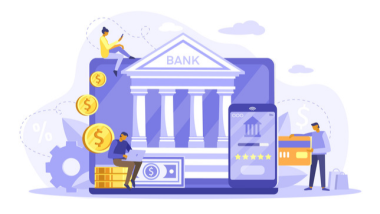End of the month and time to pay the bills. You look at your credit card statement and see again that you can only make the minimum payment.
This position is shared by many US consumers. As of the last quarter of 2021, the average U.S. credit card balance was $5,589, according to Experian.
If you have credit card debt that you are struggling to pay off, it may be worth discussing the outstanding debt with your creditors. You can negotiate with your credit card issuer to reduce monthly payments, lower your interest rate, reduce fees, and more to make it easier to pay off your credit card balances.
Here’s a guide to negotiating your current credit card debt, as well as ways to stay out of the cycle.
Why negotiate credit card debt?
If you find yourself in a quandary with credit card debt, it would be a good idea to see what your issuer can do to ease your burden. The ultimate goal of settling credit card debt “almost always is to cut monthly expenses,” said Michael Sullivan, director of education for Take Charge America. Sullivan added that negotiating credit card debt “should only be done when necessary.”
You may think that credit card companies are unwilling to negotiate with you. It is not true. Contacting your issuer can lead to a mutually beneficial solution.
“The first thing to remember is that credit card debt is unsecured debt, so it’s not like a car loan where the lender can repay the money when the debtor defaults by taking possession of the car,” said Steve Weisman, a lawyer. college professor and financial expert. “Therefore, a credit card company may be more inclined to work with someone who has financial difficulties, especially if they are not due to excessive spending, but due to other circumstances affecting the income of the credit card holder.”
Recognition when you should consider negotiating your credit card debt is important. According to Laura Sterling, vice president of marketing for Georgia’s Own Credit Union, “If you’re unable to make your monthly credit card payments, either because your debt is too high or because you’re in trouble, maybe it’s time to think about negotiations. your credit card debt.
Types of credit card debt repayment
There are various approaches to pay off credit card debt for less than you actually owe. If you decide to negotiate credit card debt, consider the following suggestions from Sterling and Paul Sundin, accountant and tax strategist:
One-time settlement
Instead of extending your debt for several years and paying in installments, this type of negotiation offers to pay off the entire debt at once, but for a smaller total amount. This is ideal for people who want to get out of debt as soon as possible.
A one-time settlement is usually done through a third-party agency, for whose services you may have to pay additional fees. When negotiating a lower lump sum, make sure it’s a reasonable amount for you.
Tolerance
If you experience unforeseen hardships, such as job loss or severe illness, many card companies have assistance programs that allow you to temporarily deduct payments or make other changes to help you get back on your feet. As part of this plan, the card issuer may also agree to lower the interest rate, temporarily lower the minimum payment, or waive late fees.
Unfortunately, your credit score may still be affected as you still owe the principal. This may still take time to repay and accrue interest.
Organization of training
If you contact your credit card company and ask for a better deal, the issuer may offer a so-called offset arrangement. The training arrangement is an agreed plan to renegotiate the terms of the credit card agreement. With a compensation arrangement, the credit card company may agree to lower the minimum monthly payment, waive interest for several months, or lower the interest rate.
This plan is good for cardholders who have room in their monthly budget to pay off debt, but will greatly benefit from a lower monthly payment.
Debt Management Program (DMP)
At DMP, you work with a credit advisory company, which is usually not for profit.
“A loan counselor will contact your lenders and arrange a less expensive payment plan on your behalf. If the negotiations are successful, you will start making monthly payments to the loan consulting company, and they will pay your creditors,” Sterling said.
Although credit counseling companies are often non-profit, they are not necessarily free. Credit consulting companies often charge a monthly fee. Keep in mind that your credit report may also indicate that you are in DMP, although this will not lower your credit score.
debt settlement firm
Commercial debt settlement companies work to negotiate lump sum payments with creditors, although this is not the best choice.
“Debt settlement companies are asking you to stop making payments to your card issuer and instead require you to make monthly payments to your debt settlement company in order to create your account,” Sterling said. “Once your account is large enough, the debt settlement company will contact your card issuer and offer to pay less than you owe. If the issuer accepts the offer, the debt settlement company pays your creditor and withholds a percentage of the amount you paid them.”
Debt settlement is often the last resort for paying off debt, and if you choose this option, it will lower your credit score. While you are paying the debt settlement company, your credit card issuer may continue to charge you interest and fees.
You should especially watch out for less reputable debt settlement companies that make high promises.
How to negotiate credit card debt
Negotiating your debt is a manageable process. Sterling recommends the following approach:
- Find out how much you owe. Before negotiating, review a recent statement or contact your issuer to determine your balance and interest rate.
- Make a plan. Decide what works best for your circumstances: a one-time settlement, a training arrangement, or leniency. Do you want to negotiate on your own or trust a professional? Analyze your current financial situation and the risks associated with it.
- Contact your credit card issuer. If you choose to negotiate on your own, call your creditor and ask to speak with the debt settlement department. Explain your situation and make an offer. Prepare the script ahead of time so you know exactly how to make the request. Be honest, clear and polite. If the representative is unable or unwilling to negotiate, be prepared to ask to speak with the manager or call back later.
- Take detailed notes. Document the dates and times of your conversations, and keep the full names and titles of everyone you spoke to for reference.
- Get the terms in writing. If you’ve successfully negotiated your debt, get everything in writing so you can always go back to your terms if anything else comes up. Please make sure you understand and agree to the new terms.
What are the disadvantages of negotiating a credit card?
Negotiating your credit card debt can be a great way to save money and catch up with your payments, but there are a few potential downsides to consider. First, your creditor is not required to agree to negotiations. So if you stop making payments to the issuer while you or a third party agency or firm is negotiating and the negotiation falls through, you may end up in more debt than before.
Secondly, your credit score can suffer from credit card debt negotiations. Even if your debt has never been officially delinquent and therefore past due, your credit report will still show that you paid less than the full amount of your debt.
However, for past due accounts that have already lowered your score for the usual reasons—missed payments and high credit utilization—settlement notation may not cause further damage.
For those opting for a lump sum settlement, you may also need to claim the forgiven debt as income on your upcoming tax return and pay taxes on that amount. If these taxes are eating into your overall savings, you should think about it before deciding if it’s the right move.
Alternatives to Debt Negotiations
Debt settlement is not your only option for getting out of your credit card debt. Let’s look at some other debt relief options that may be available to you.
Balance transfers
If you have multiple sources of high-interest credit card debt, you may want to consider transferring the balance. By transferring your debt to a credit card with a balance transfer at a lower interest rate, you can make paying off your debt more manageable and you can pay it off faster because more of your payments will go towards principal rather than interest.
Having all your credit card debt on one card will make it much easier for you to manage your debt as you only need to make one monthly payment. However, this step only makes sense if you can secure a lower interest rate than what you are currently paying.
Debt Consolidation
Similar to a balance transfer card, you can consolidate all your debt by combining multiple sources of debt into one debt consolidation loan. This can make repaying your debt more convenient, and if you secure a lower interest rate, you can spend less on debt repayment. If you need help with this process, you can contact a credit counseling agency to develop a debt consolidation plan.
Bankruptcy
While bankruptcy is usually seen as a last resort, it may be the right path for you. When you file for Chapter 7 bankruptcy, you can get rid of most forms of outstanding debt, such as credit card debt. However, debts such as back taxes, student loan debt, and missed child support payments are excluded from bankruptcy.
Like paying off debt, filing for bankruptcy damages your credit score, but the bankruptcy process can go much faster, allowing you to move on and start rebuilding your finances sooner.
bottom line
If you’re struggling with debt, contact your credit card issuer to start a conversation. They will likely be motivated to develop a plan that will help them recoup at least some of their losses.
If you need help, consider professional credit counseling, but try to remain vigilant about which nonprofits or commercial agencies you ask to negotiate on your behalf.
And, of course, be aware of the risks associated with settling credit card debt. While it’s great that you could potentially pay less than your actual debt or renegotiate your repayment terms, your credit score could suffer.
Editorial disclaimer
The editorial content on this page is based solely on the objective judgment of our contributors and is not based on advertising. It was not provided or ordered by credit card issuers. However, we may receive compensation when you click on links to our partners’ products.


